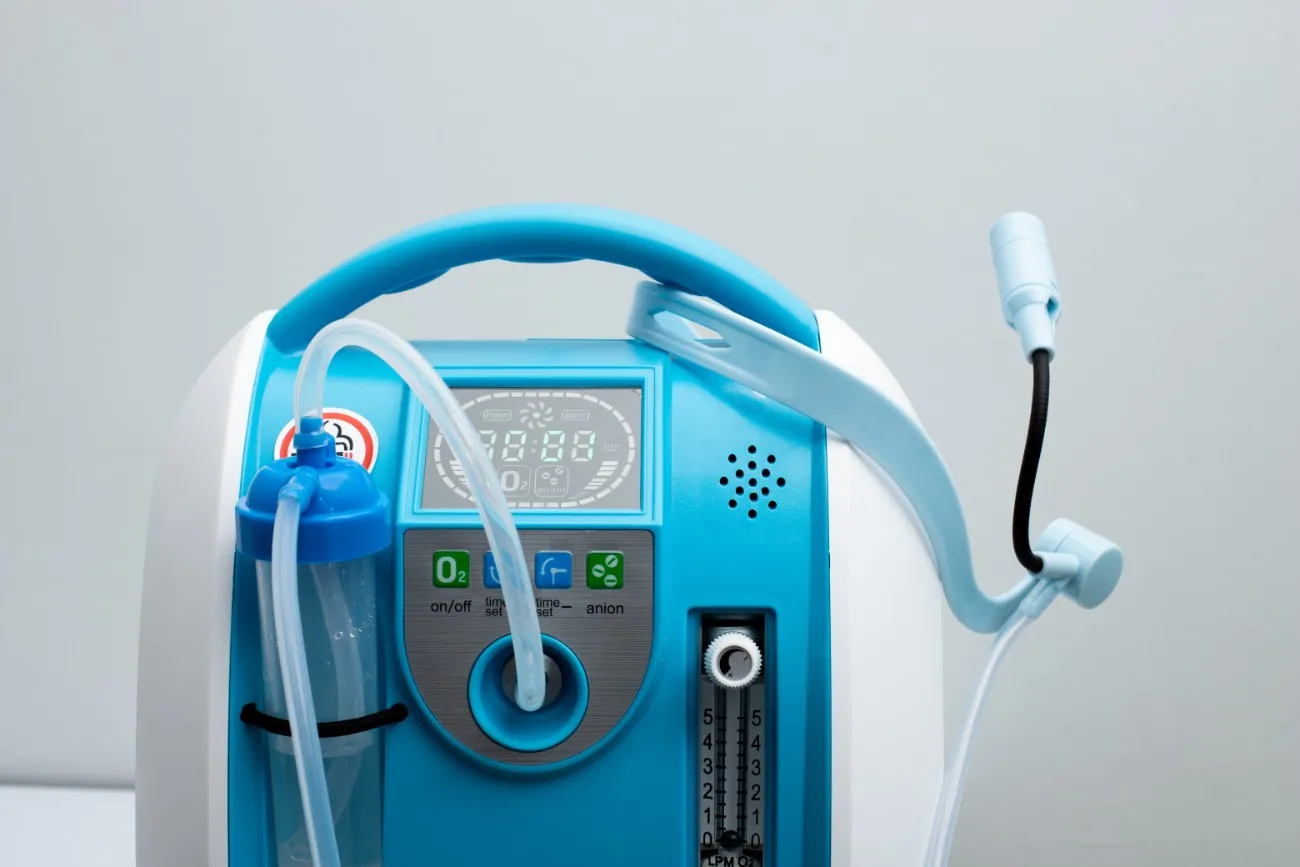If you’re having breathing problems and looking for something to treat your condition, there’s a device that might be able to help. You might be imagining a bulky oxygen tank, but there’s a less intimidating option you may not have heard of — it’s called a portable oxygen concentrator.
This type of device works similar to an oxygen tank, but is easier to use and has a lot of benefits. Portable oxygen concentrators is a form of oxygen therapy that helps patients suffering from chronic lung conditions.
Here is what you need to know about portable oxygen concentrators.
How Are Portable Oxygen Concentrators Different From Oxygen Tanks?
Portable oxygen concentrators (POC) are used by patients with severe medical conditions and need assistance breathing. When your lungs are unable to naturally absorb oxygen and transfer it to the bloodstream, this device will help.
It’s similar to traditional oxygen tanks, but there are some major differences. Oxygen tanks only hold a certain amount of compressed oxygen or liquid oxygen inside. This means the patient will have to refill the tank each time it gets empty.
Portable oxygen concentrators require no refills, meaning you don’t need to constantly monitor your tanks. They work by absorbing air from the surrounding environment and purifying it, so you never have to worry about running low on oxygen. Unlike oxygen tanks, they’re easy to maneuver and come available with a shoulder bag or backpack for easy portability. They’re compact enough to bring in tight spaces like cars and other places you need to go.
Benefits Of Using A Portable Oxygen Concentrator
If you’re experiencing trouble breathing, oxygen therapy can help to improve your health. And there are other less obvious benefits to using a portable oxygen concentrator you might not realize.
Some benefits to using a POC include:
- Ability to tolerate exercise at higher intensities
- An increased survival rate compared to patients who don’t use a POC
- Improved cognitive performance
- Better sleep at night with reduced interruptions or discomfort
- Increased stamina
- Improved mood and mental health
Perhaps the biggest benefit to a POC is feeling a sense of normalcy that might have disappeared once your health started to decline. You’ll no longer need to feel like you’re restricted by your need for oxygen.
If you think using a portable oxygen concentrator would improve your life, the next step is to figure out how to get one.
How Much Do Portable Oxygen Concentrators Cost?
There are a few ways you can buy a portable oxygen concentrator. Prices start in the thousands and will increase depending on battery life and accessories.
The most expensive way to obtain a machine is buying it new. Alternatively, you could look for retailers that sell used machines at a lower price. Renting is also an option if you wanted to pay for the machine month to month.
You might be able to save money on a POC if you’re a Medicare subscriber. But before you can file a claim, it must be deemed medically necessary by your doctor.
Portable oxygen concentrators are considered durable medical equipment. This type of medical equipment requires approval from your doctor in order for it to be covered by Medicare.
Your POC will be covered by Medicare if you meet the following requirements:
- Your doctor says you have severe lung disease or you’re not getting enough oxygen
- Your health might improve with oxygen therapy
- Your arterial blood gas level falls within a certain range
- Other alternative measures have failed.
You will only pay 20 percent of the amount, and the Part B deductible will apply. This coverage rents you the portable oxygen concentrator, but you can rent it for as long as you need. It can save you a lot of money as opposed to paying full price for the cost of a new device.
Make sure to read up on your healthcare plan and talk to an insurance representative to fully understand how much money you’ll have to pay out of pocket.
Portable Oxygen Concentrators Can Improve Your Life
If you’re experiencing breathing problems, a portable oxygen concentrator could be beneficial. People with COPD, cystic fibrosis and other types of chronic conditions might be able to improve their day-to-day lives with oxygen therapy.
Talk to your doctor and see if having a POC is medically necessary for your health. If so, they can approve you as a patient requiring durable medical equipment and qualify for Medicare coverage.
Portable oxygen concentrators give patients suffering from chronic conditions a chance to regain some freedom in their lives. They can help you to complete everyday tasks that would otherwise be too difficult to do without oxygen therapy.
